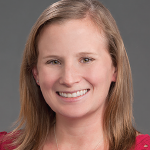
Jirsak / shutterstock.com
Leslie Kahl, MD, on Coaching
I have been an academic clinician-educator for my entire career and, like most of my colleagues, have been called upon to advise, mentor and coach countless trainees and junior faculty members. Unlike most clinician-educators, though, I also served as associate dean for student affairs at Washington University School of Medicine, St. Louis, for 18 years, supporting more than 2,000 students through graduation. So I thought I knew what I was doing. But last year I learned the difference between advising, mentoring and coaching, and it has changed my career path and taught me three big lessons.
1. Be a coach: First, simply put, an advisor is typically an expert in the field, senior to the advisee, who provides answers to questions and solutions to problems. Similarly, a mentor is generally a senior colleague in the field who serves as a role model and provides opportunities for the mentee to proceed along a predetermined path.
A coach, in contrast, stands next to the coachee as a peer and partners with them to listen and ask questions that help the coachee realize where they are now, where they might aspire to be and how to get there. The coach does not give advice or offer opportunities, but instead empowers the coachee to synergize their values with their vision and actions, and helps them hold themself accountable for the outcomes. The coach listens, asks powerful questions and supports the coachee in developing a personalized plan for self-development.
A few simplified sample conversations should clarify these differences.
Advisor: “Let’s talk about your research project. I think you should use a multivariate analysis on this dataset. Don’t forget the Bonferroni correction. And I’d like to see a draft of the methods section by next Friday.”
Mentor: “Let’s talk about your research project. The data analysis here could be tricky. You might want to touch base with Dr. Number Cruncher; I will email an introduction for you. And when it’s time to submit the manuscript, please consider the Journal of Really Important Findings; they have been receptive to similar publications from my lab in the past.”
Coach: “So you wanted to talk about your research project. Which sections are giving you trouble? What does a great outcome to those hurdles look like? What steps can you think of to get that great outcome? Which of those are you willing to commit to doing next, and when do you plan to have it finished?”
2. Ask questions. The second lesson I learned is about questions. As an educator I ask a lot of questions, nudging the learner to come to a conclusion, take a stand and commit. This is not pimping in the pejorative or Socratic sense, but gently supporting the trainee to consider alternatives and take ownership of a plan. I believe that asking for this commitment leads to learning and growth in a way that simply telling the learner what to do cannot.1
In a coaching relationship, asking the coachee to prioritize and come up with a plan, rather than telling them what to do, leads to commitment and follow-through. Coachees are often surprised with the responses they come up with. The answers were in there all the time, but needed a little prodding to come out.
To ask powerful questions, though, the coach needs to be a great listener, paying as much attention to what is not said as to what is said, picking up on subtle changes in the coachee’s energy while speaking and, sometimes, using intuition to fill in the blanks. Here, the great coach shares territory with the great rheumatologist: The nuances of the patient’s history and exam inform the skilled clinician’s approach to the diagnosis and treatment plan.
3. Embrace developmental coaching: The third lesson I learned is the power of developmental coaching. During our coach training, our cohort members were assigned to coach each other on multiple occasions. Although many of us were novices at this, we still had some profound aha moments, breakthroughs and leaps across that gap between what is and what could be.
In a powerful essay in The New Yorker, Atul Gawande described how even an experienced surgeon can benefit from the fresh perspective of a coach.2 Further, a study at the Mayo Clinic showed that 88 practicing physicians who each received six coaching sessions facilitated by a professional coach demonstrated significant decreases in overall burnout and emotional exhaustion, along with significant improvements in quality of life and resilience.3
The benefits may go beyond the individual who is receiving the coaching. A study from the Mayo Clinic demonstrated that for every one point increase in the composite leadership score of their supervisors, physicians had a 3.3% decrease in likelihood of burnout and 9% increase in the likelihood of satisfaction.4 Components of the 12-item leadership score included easily coached skills, such as, “Holds career development conversations with me,” “Is interested in my opinion,” and “Recognizes me for a job well done.”
Finally, the principles of developmental coaching—listening, asking questions and supporting—could also readily be applied by clinicians to their patients’ care.
Having completed training through the Physician Coaching Institute, I am now a Certified Physician Development Coach. While continuing my work in rheumatology and education, I look forward to coaching mid-career faculty who have recently assumed leadership roles at my institution. I also anticipate continuing to receive coaching, and would ask you to consider if it might be just the thing to help you reach the next level in your own work and personal life.
Sheryl Mascarenhas, MD, on Going Virtual
The pandemic completely changed the way we teach medicine. One of the most dramatic changes came with the dissolution of in-person lectures and the pivot to video conferencing. Virtual education has numerous benefits. Learners no longer needed to cut clinics short to travel to a lecture hall, and with social distancing rules we did not have to worry about limiting the attendance for our lectures. Lecture times were no longer restricted to building hours.
However, as the use of virtual platforms ballooned during the pandemic, the limitations of virtual education also blossomed. It is easy for participants to lose focus and become unengaged in a virtual lecture. With numerous distractions, such as family, pets, laundry, cooking and catching up on clinical charting, zoning out while zooming in is all too easy.
In August 2020, the Ohio State University Rheumatology Fellowship Program launched the Innovative Fellow Education Series in an effort to improve learner engagement over virtual platforms. Rather than adding more lectures that could lead to further passive learning environments, the series focused on interactive educational activities that could be accomplished in a virtual setting.
The goals of the program were to allow fellows the opportunity to use their creative skills to develop an educational activity that corresponded to our monthly educational topic. Fellows would choose a mentor from the division to help design and run the activity.
The pilot program occurred during our inflammatory myopathy education month. Our chief fellow, Fahad Khan, MD, worked with me (i.e., the program director), to develop a myositis-specific antibody activity aimed at reviewing clinical presentations associated with various myositis-specific antibodies.
Patterned after the 1980s’ game show Classic Concentration, the activity included several picture puzzles in which the pictures demonstrated the key clinical features of a particular myositis presentation. For example, pictures representing amyopathy, rapidly progressive interstitial lung disease, fever, palmar papules and skin ulcerations were clues for anti-MDA-5 antibody.
During the activity, fellows divided into two breakout rooms and competed as teams against each other to identify the correct antibody. The activity allowed for a flipped classroom setting, where fellows on the team could teach each other as they worked through the puzzles. The feedback was highly positive. Fellows appreciated the high level of engagement and appeal to visual learners.
After the success of the pilot, each fellow was assigned a topic and developed their own educational activity over the year. These included Jeopardy-like games, case discussions, board-style review questions and practical applications of disease activity indices in rheumatoid arthritis.
The series’ primary goal of increasing engagement was actualized as it created a learning environment rooted in learner participation. It allowed for the development of fellow teaching skills and promoted mentoring within the division. The series also provided a much needed outlet for socialization during a pandemic year when so much of our activities for socialization were restricted.
We plan to continue the series into the coming year. This model can easily be replicated at other institutions and has potential for multiple
institutions to participate in the same—or similar—activities.
Rachel M. Wolfe, MD, on Launching a Virtual Rheumatology Objective Structured Clinical Examination
The Carolinas Fellows Collaborative (CFC) is a unique collaboration among rheumatology fellowship training programs from North and South Carolina initially founded in 2004 by program directors from Duke University, Durham, N.C.; Medical University of South Carolina, Charleston; University of North Carolina at Chapel Hill; and Wake Forest Baptist Health (WFBH), Winston-Salem, N.C.
Here, the great coach shares territory with the great rheumatologist: The nuances of the patient’s history & exam inform the skilled clinician’s approach to the diagnosis & treatment plan.
The CFC began as a collective summer conference to enhance rheumatology fellow education through shared resources, expanding to include a Winter Symposium in 2006. The summer conference is held annually at WFBH, culminating in a cadaver lab experience. The Winter Symposium rotates among the other participating institutions, highlighting each institution’s exceptional educational strengths. Massachusetts General Hospital, Boston, began participating in the Winter Symposium in 2014.
During each Winter Symposium, the CFC conducts a Rheumatology Objective Structured Clinical Examination (ROSCE), providing formative assessments of fellow performance, which has been well received by fellow participants. With the COVID-19 pandemic, the traditional face-to-face ROSCE was transformed into a virtual format (vROSCE) in February 2021.
The vROSCE was conducted using a Zoom platform and comprised six stations, duplicated in parallel to accommodate 12 fellows at a time. Utilizing breakout rooms, fellows progressed through virtual stations, with performance assessments under direct observation receiving immediate feedback from rheumatology faculty.
Highlighting the relevance of virtual patient care delivery, one station assessed fellows’ skills in conducting a virtual new patient visit. The other five stations included:
- Dual-energy X-ray absorptiometry (DXA) interpretation and resultant treatment recommendations;
- Phone communication with a primary care provider regarding concern for giant cell arteritis;
- Recommendations to another rheumatologist for a patient with lupus, newly pregnant, currently taking mycophenolate mofetil;
- Renal pathology interpretation with associated treatment recommendations; and
- X-ray interpretation of musculoskeletal disorders.
Each station was 10 minutes in length, with an additional two minutes for feedback. One minute was allotted for transitioning fellows between virtual stations (breakout rooms).
Twenty-three fellows from five institutions participated, with half the fellows initially engaged in the vROSCE stations, while the other half completed a crystal analysis assessment quiz and a station devoted to writing an insurance appeal letter. After this initial 90-minute period, the two groups switched to complete the other half of the vROSCE. Evaluations, structured using the ACGME core competencies, were provided to each fellow’s program director upon completion. Responses from faculty and fellow participants were overwhelmingly positive regarding educational value and virtual format.
In contrast to the traditional ROSCE, the virtual format led to considerable cost savings. Previously, significant cost was associated with travel and accommodations, in addition to the facility cost for the space to perform the ROSCE. With only the Zoom account and faculty time, the cost of the vROSCE was minimal, making this valued educational activity practical for all rheumatology fellowship programs.
Although the vROSCE had minimal cost and enabled robust evaluation of fellows, stations requiring physical contact, such as application of splints or counseling for assistive devices were not easily translatable into a virtual format.
The vROSCE is an innovative, feasible and well-received educational tool to enrich fellows’ education and competency assessment, easily implemented across institutions.
 Leslie Kahl, MD, is professor of medicine and associate dean for strategic initiatives at Oregon Health & Science University and, now, a Certified Physician Development Coach. She can be reached at [email protected].
Leslie Kahl, MD, is professor of medicine and associate dean for strategic initiatives at Oregon Health & Science University and, now, a Certified Physician Development Coach. She can be reached at [email protected].
 Sheryl Mascarenhas, MD, is the clinic director of CarePoint East Rheumatology and Nephrology Clinics at the Ohio State University Wexner Medical Center and the rheumatology fellowship program director. She is also the national vice president for Phi Rho Sigma Medical Society.
Sheryl Mascarenhas, MD, is the clinic director of CarePoint East Rheumatology and Nephrology Clinics at the Ohio State University Wexner Medical Center and the rheumatology fellowship program director. She is also the national vice president for Phi Rho Sigma Medical Society.
 Rachel M. Wolfe, MD, is an assistant professor at Wake Forest Baptist Health and program director of the rheumatology fellowship.
Rachel M. Wolfe, MD, is an assistant professor at Wake Forest Baptist Health and program director of the rheumatology fellowship.
References
- Sherrington T. Great Teaching: The power of questioning. Teacherhead blog. 2018 Aug 24.
- Gawande A. Personal best. The New Yorker. 2011 Sep 26.
- Dyrbye LN, Shanafelt TD, Gill PR, at el. Effect of a professional coaching intervention on the well-being and distress of physicians: A pilot randomized clinical trial. JAMA Intern Med. 2019 Oct 1;179(10):1406–1414.
- Shanafelt T, Gorringe G, Menaker R et al. (2015): Impact of organizational leadership on physician burnout and satisfaction. Mayo Clin Proc. 2015 Apr;90(4):432–440.


